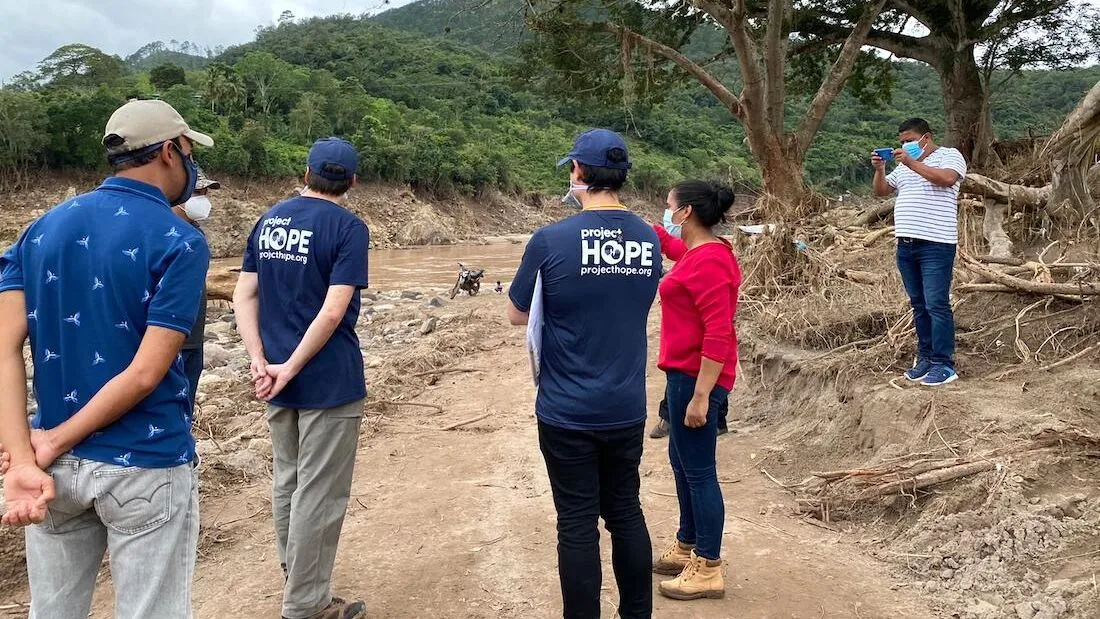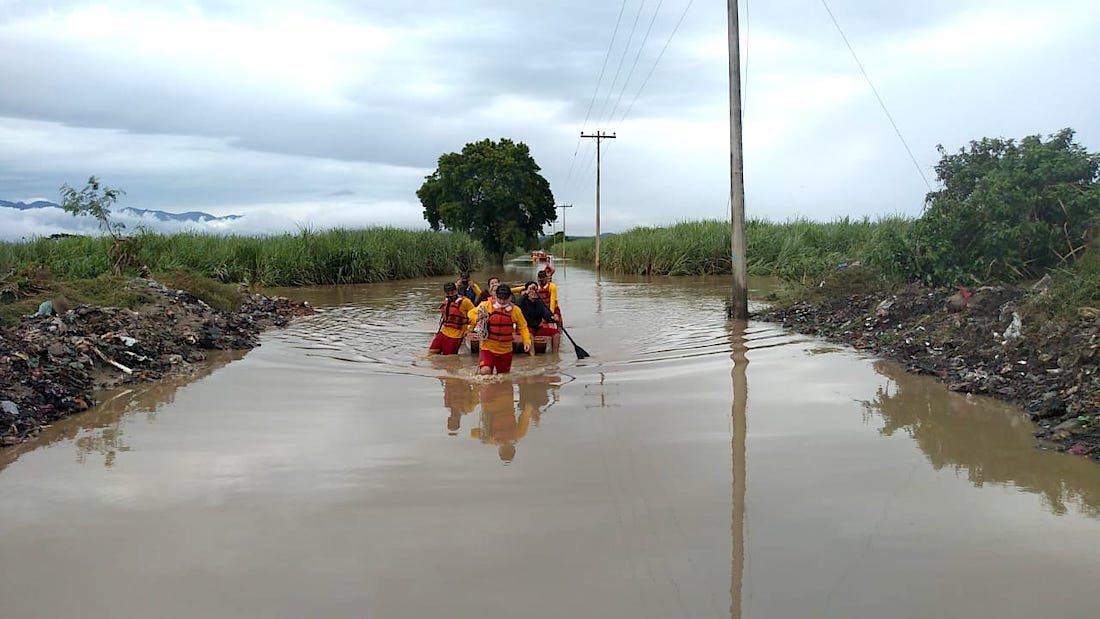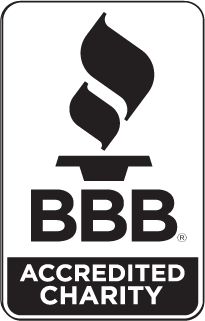Hurricanes Eta and Iota: How Project HOPE Is Responding
Project HOPE is on the ground in Honduras, providing lifesaving medical relief in the aftermath of Hurricane Eta and Hurricane Iota. Learn more about our response and how you can help.

The needs across Honduras and Central America remain critical in the wake of Hurricane Eta and Hurricane Iota, a pair of Category 4 hurricanes that battered Nicaragua and Honduras with devastating winds and catastrophic flooding.
Project HOPE is on the ground in Honduras mobilizing life-saving relief and personal protective equipment to protect survivors and local health care workers as they recover from these hurricanes.
Learn more about Project HOPE’s response and how you can help below.
What You Need To Know:
- Hurricanes Eta and Iota made landfall as Category 4 storms in Central America just two weeks apart
- 250,000 people still lack vital health care services
- COVID-19 is spreading in Honduras, leading to high case counts and deaths
- Project HOPE is on the ground in Honduras providing lifesaving relief to communities affected by the storms
What are conditions like on the ground?
As rebuilding continues in Honduras, two key crises — limited access to clean, potable water and the spread of COVID-19 — continue to impact the country.
In November 2020, Hurricanes Eta and Iota made landfall just two weeks apart in northeastern Nicaragua, one of the country’s poorest areas. While the Category 4 winds were strong enough to cause severe damage, the storm’s rainfall and flooding have been devastating. Nearly 5 million people have been affected by the storms across Central America and Mexico, with 250,000 people currently lacking or having limited access to health services
Several departments, including Santa Barbara where Project HOPE is focusing operations, reported landslides due to the heavily saturated ground. Regular seasonal rain will only increase the potential for additional landslides in the region and risk to local communities. Landslides and continued flooding have isolated communities as bridges have been damaged or destroyed.
“After Hurricane Eta, we had been able to make a temporary crossing to be able to evacuate people who were ill from the surrounding hills,” says Dr. Walter Perdomo, a former Project HOPE volunteer who is mayor of Villanueva, Honduras. “But the damage [to the bridge] has gotten four or five times worse. Eta was a disaster, and now with Iota, the crossing has been destroyed.”

What are the greatest health concerns?
Both storms caused major flooding across the affected areas, which makes these areas a breeding ground for water- and vector-borne diseases. Now, two months after the storms, the biggest threats are lack of clean water and the spread of COVID-19.
In the Santa Barbara region, it will take time to test local water supplies and restore access to sewer systems and potable water following damage from Hurricanes Eta and Iota. Consumption of contaminated water leaves the region’s population susceptible to water-borne illnesses and other health impacts. With many in the region living in poverty, families cannot easily afford treated water or equipment to purify well water at home.
There were over 6,000 new confirmed cases of COVID-19 across Honduras in the week of January 7-14, a diagnosis account exceeding the previous peak 7-day infection count from late June 2020. Honduras also reported 128 COVID-19 deaths over those seven days. The number of undiagnosed cases may be higher.
To reduce the spread of COVID, the Honduran Government has instituted a nightly curfew from 9pm to 5am effective January 12. The curfew requires everyone except those supporting heavy cargo transportation and other authorized individuals to stay in their homes. Rules limiting the capacity of commercial establishments also remain in place and many entertainment venues will remain closed.
The capacity of the local health care systems has been critically impacted and health facilities could quickly run out of the medical supplies and equipment they were able to save. Damages have been recorded in more than 55 health facilities across the affected departments of Cortés, Yoro, Gracias a Dios, and Atlántida. More than two-thirds of damaged health facilities are located in the department of Cortes.
While some facilities reported a total loss of PPE supplies, others have lost over 80% of essential supplies and medicines. At least 12 health facilities have reported a total loss of cold chain equipment and vaccines. This will impact the availability of certain medicines like insulins and disrupt a future COVID-19 vaccination campaign.
What is Project HOPE doing to help?
Project HOPE, in partnership with local organizations ADASBA and CASM, continues to conduct community-level water, sanitation, and hygiene activities and hygiene promotion in the Santa Barbara department. Project HOPE’s WASH intervention will reach 3,000 families with potable water, while community hygiene promoters are providing water purification training and distributing chlorine, buckets, and low literacy training materials to improve access to clean water.
Project HOPE also delivered 250,000 surgical and KN95 masks to local partners and the Honduran government for community and health facility distribution.
Project HOPE, in partnership with the Spanish INGO SAMU, at the request of the Honduran government and PAHO/WHO, concluded its deployment of an emergency medical team. The EMT deployed primarily to remote villages without access to health services in the Santa Barbara region, conducting 1,181 patient consultations.
Project HOPE is coordinating with local officials to deliver longer-term interventions to provide COVID-19 and mental health trainings for frontline health care workers. Utilizing trainer-of trainers curriculums, the trainings will improve the ability of health workers to contain and treat COVID-19, as well as manage mental health needs in a highly stressful environment.
What are the long-term concerns?
Months after the storm, 250,000 people still face limited or no access to health services. Among those who need health care services in priority are pregnant women, lactating mothers, newborns, and children.
Additionally, the two hurricanes have had a devastating effect on the affected communities’ main livelihoods of fishing and agriculture. As an organization that focuses on maternal, neonatal, and child health, we worry about the lack of food and access to clean water for pregnant women, new mothers, newborns, and children. Reaching these populations in need and isolated areas is going to be challenging but should be of utmost priority.
These hurricanes are among the strongest November hurricanes to ever strike in the Atlantic, in an already devastating hurricane season. Climate change has exacerbated Central American and Caribbean countries’ exposure to natural disasters. Over time, the region will be subjected to bigger and more frequent tropical storms.
This impact of climate change and the multiplication of storms are having an impact on the population’s long-term health, especially the most vulnerable ones. We fear a redistribution of infectious diseases; an increase in cardiac and respiratory illnesses; increased mental health issues; and the loss of homes, livelihoods, and lives.







